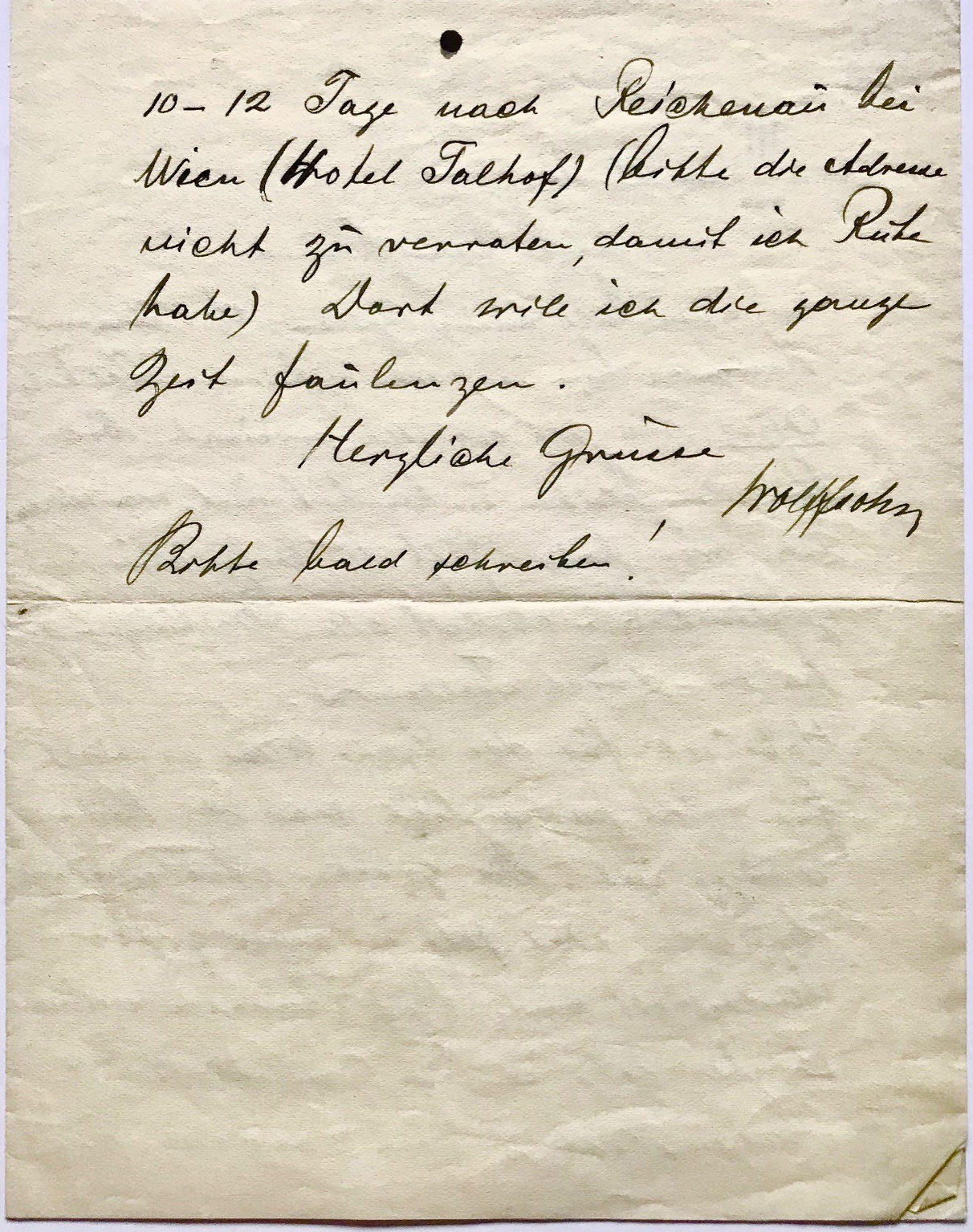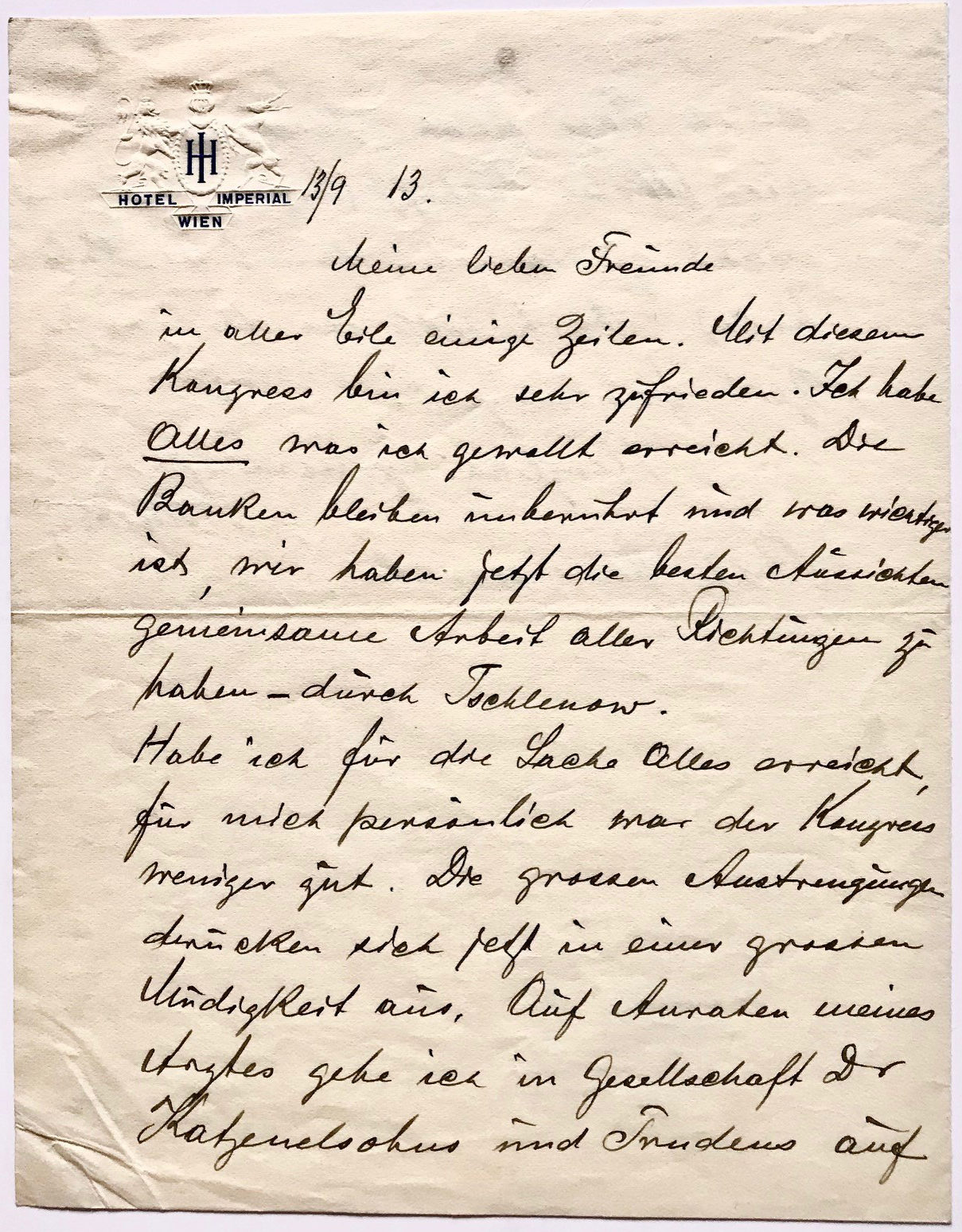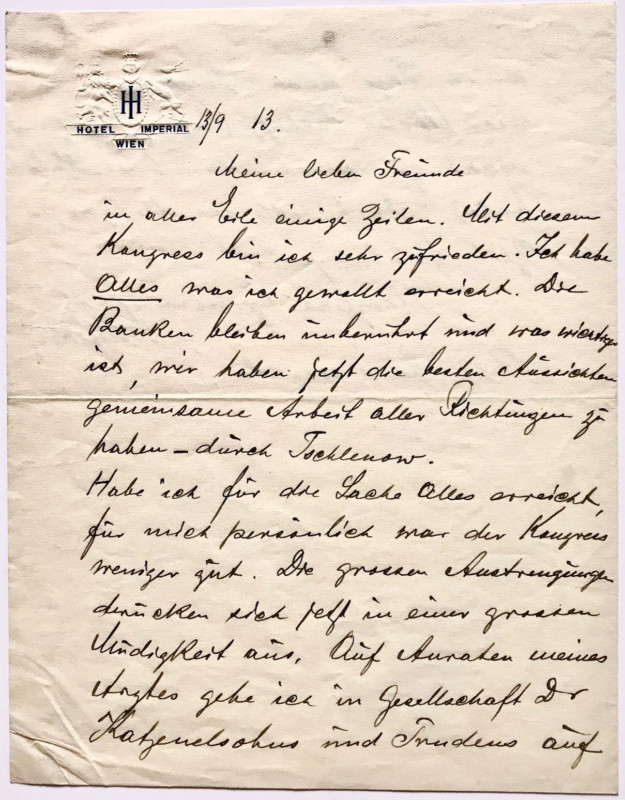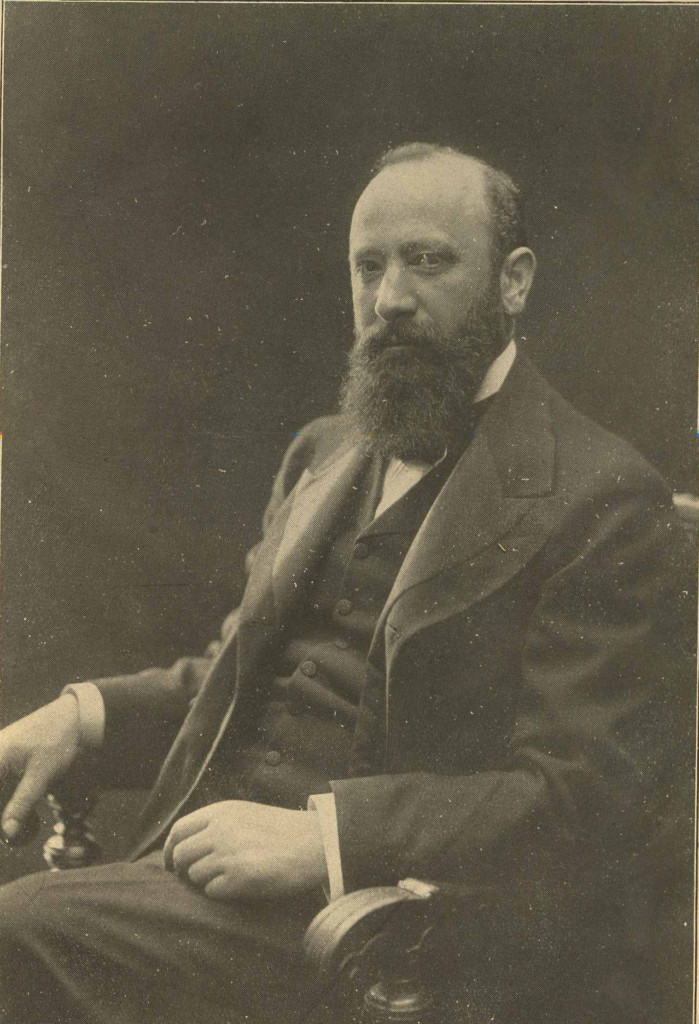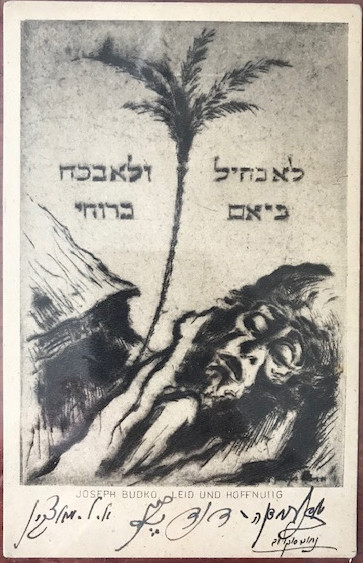WOLFFSOHN, DAVID. (1855-1914). Lithuanian Zionist who proposed the design for Israel’s flag, brought the word “shekel” into modern usage and was Herzl’s literary executor and successor in the Zionist Organization. ALS. (“Wolffsohn”). 1½ pp. 8vo. Vienna, September 13, 1913. On the stationery of Vienna’s Hotel Imperial. To unidentified friends. In German with translation.
“Just a few hurried lines. I am very satisfied with this Congress. I achieved everything I set out to. The banks remain untouched, and what is more important, through Tschlenow, we now have the best prospect for joint work in all directions.
I may have achieved everything for the cause, but for me personally, the congress was less than good. The tremendous strain has now resulted in extreme fatigue. On my doctor’s advice, I am going to Reichenau, [a spa] near Vienna, (Hotel Talhof) for 10 – 12 days in the company of Dr. Katzenelsohns and the Trudens. (Please don’t share my address, so I can have peace and quiet.) While there, I intend to be lazy the whole time… Please write soon!”

